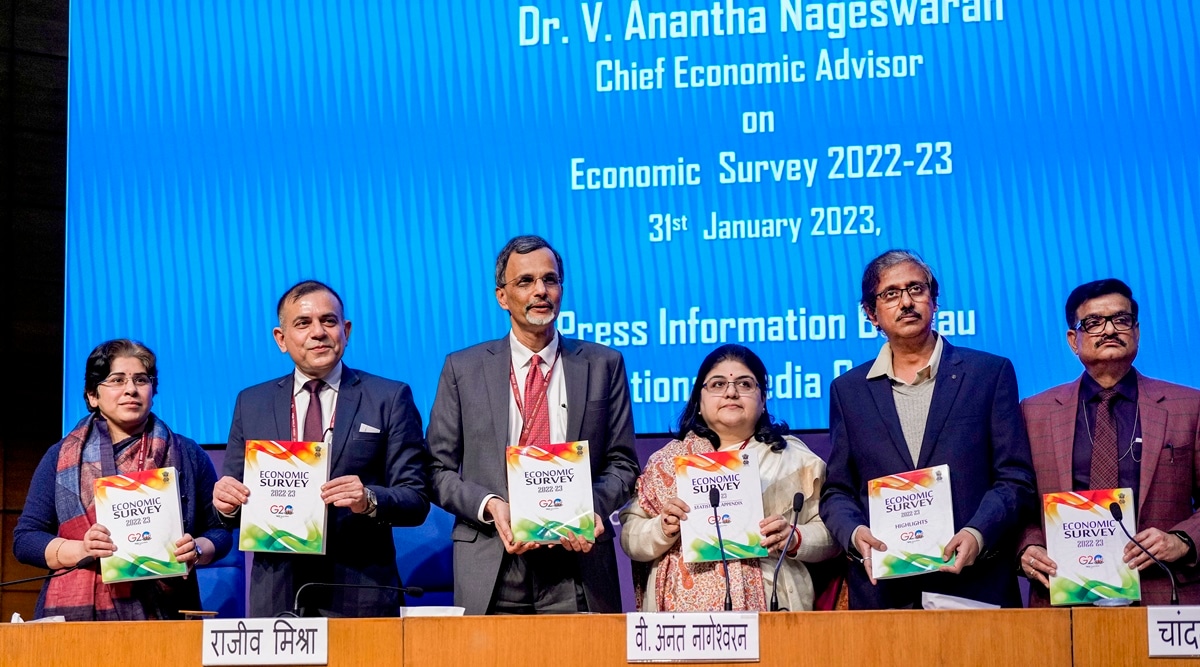
The latest Economic Survey has laid out not just the growth forecast for the current financial year (2022-23) but also commented on the growth outlook in the coming financial year (2023-24). It has also shared its assessment of the inflation trajectory and the the unemployment rate in the country. Here are the key takeaways:
The Survey states that India’s growth estimate for FY23 is higher than for almost all major economies. In fact, the Survey pointed out that India’s growth is “even slightly above the average growth of the Indian economy in the decade leading up to the pandemic”.
The Survey projects a baseline GDP growth of 6.5 per cent in real terms in FY24. “The projection is broadly comparable to the estimates provided by multilateral agencies such as the World Bank, the IMF, and the ADB and by RBI, domestically,” it states.
As things stand, the RBI has projected headline inflation at 6.8 per cent in FY23. This is outside the RBI’s comfort zone, which ranges between 2 per cent and 6 per cent. High inflation is seen as one big factor that is holding back the demand among Indian consumers. However, the Survey sounded optimistic about the inflation levels and trajectory.
While factors such as what happens in the rest of the world economy, the US Fed’s decision, the geopolitical uncertainty, and the way stock markets react may be outside the government’s control, the Union Budget can play a big role in steadying the ship.
The Union Budget must come through on certain key metrics, from the Budget numbers to the revenue deficit. Read how to evaluate a Union Budget here.
Also Read:





